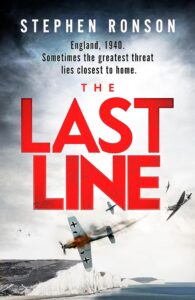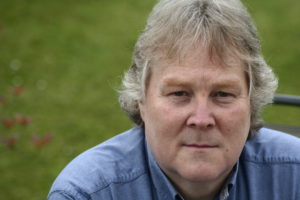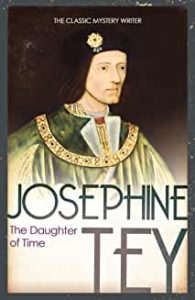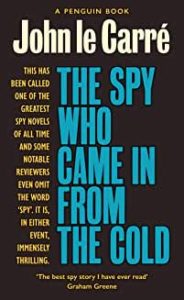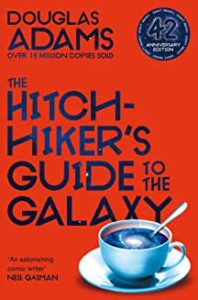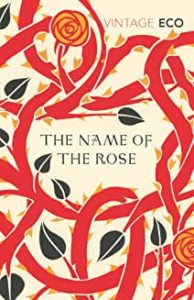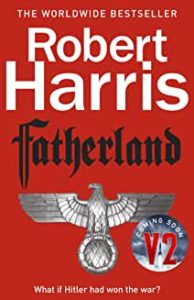Banquet of Beggars – Chris Lloyd
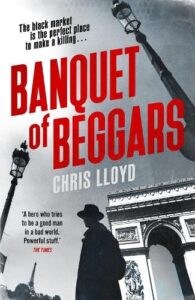 In Paris 1940, survival means sacrifice. Like most in the city, Detective Eddie Giral has already lost so much under Occupation: the people he once loved, the job he once believed in.
In Paris 1940, survival means sacrifice. Like most in the city, Detective Eddie Giral has already lost so much under Occupation: the people he once loved, the job he once believed in.
And his latest investigation into the murder of a black-marketeer has made it clearer than ever: Eddie is no longer just catching criminals. He’s working for them. Because when a German trader is the next to die, the authorities decide it’s innocent civilians who will pay the price – unless Eddie can find the killer in time.
As hunger grows, tensions rise and a fierce rebellion brews, Eddie will tread a dark path between doing whatever it takes to live with the enemy… and also with himself.
My thanks to the publishers for a review copy of Banquet of Beggars which I received through Netgalley.
“collaborator”
noun
disapproving
a person who works with an enemy who has taken control of their country
Collaborator is a word Eddie Giral is hearing far too often. It is shouted at him, hissed at him and muttered about him behind his back. It is not a word which Eddie accepts. He is a Paris cop, he is doing the job he’s always done and is trying to do it to the best of his ability. But the citizens of Paris are increasingly distrustful of Eddie as it is 1940 and Paris is under German control. If Eddie is trying to enforce the law then the assumption is that he is working alongside the Germans and that makes him a collaborator with their oppressor, this means people are less likely to trust him and his ability to do his job will also be severely impacted.
An inability to gather information is a major hinderance to Eddie as his role is very much to keep his German “boss”, Major Hochstetter, informed of various aspects of criminal activity within the city. Eddie’s actual boss within the French police is Inspector Dax. Both Dax and Hochstetter have an interest in Black Market activity within Paris. As the city residents approach the second Christmas under occupation there is an increasing shortage of many types of staples and this means black market trading is rife.
Banquet of Beggars opens with Eddie, not above the law in some instances, trying to join a large queue of hopeful shoppers who have had word a supply of butter may be available. The source of the rumour (and the source of the butter) are somewhat vague and there’s real doubt any butter which does materialise will be legally obtained but Eddie’s happy to take the chance and overlook any grey legal areas. Unfortunately for Eddie his shopping is going to be interrupted by the discovery of a body but with hindsight he realises he may have moved a bit closer to gathering important information about the Paris Black Market. The body Eddie will find certainly has some connection to illegal trading – not least because someone has stuffed some butter into the corpse’s mouth. And that’s not the most unexpected thing he finds at the crime scene!
Tasked with finding more about the illegal traders in the city Eddie is frustrated to find his office space is to be shared with a new administrative assistant and also with his colleague Detective Boniface. Even during wartime and in the midst of personal drama and challenging work commitments it’s somewhat reassuring to see just how frustrated Eddie can be when having to deal with workplace disruptions and losing some of his precious desk space.
What I particularly love about Chris Lloyd’s Eddie Giral books is how Paris springs to life around the police, the soldiers and even the surly bar staff who Eddie delights in winding up. These books are not simply a crime story they are accompanied by a fascinating insight into the social history of Parisians during the 40’s. Aspects of their life are woven into the plot so we can see how they coped with rationing, increasing fear at the Gestapo’s “techniques” for gathering information, travel when there are fuel shortages and even how they choose to socialise. The depth of the world Chris Lloyd spins around his characters is an absolute treat for readers – small wonder he has won the HWA Gold Crown for Best Historical Fiction.
Eddie Giral is a man with a raft of problems. To be fair, however, many of these problems come from Eddie’s own sardonic nature and his inability to keep the inside thoughts unspoken. His personal life is in turmoil as he has to keep his relationship secret from the authorities – Germans are not accepting of black women at this time and Eddie cannot afford to have Major Hochstetter discover a potential weakness in Eddie’s life which Hochstetter could exploit. This is equally true of Eddie’s son who has fled the city and Eddie doesn’t know if his son is safe or even if he is alive.
Beggars Banquet zips along at a very enjoyable pace. Eddie’s investigations into the Black Market trading gets waylaid by the appointment of a new judge who seems intent on making an example of two foolish small-time crooks by sentencing them to death by guillotine despite a lack of any real evidence. Eddie has known the crooks (brothers) for many years and is doing his best to prove their innocence despite the judge ignoring any attempts to see justice done – it will please the Germans that action is seen to be taken. Eddie has also been asked to help secure the release of a young French protestor who got caught up in an anti-German event – this is more tricky for Eddie as she is being held by the Gestapo and Eddie will need Hochstetter’s help to secure her freedom. But Hochstetter isn’t interested in helping Eddie.
It’s a glorious sequence of dilemma, drama and a swinging shift in power dynamics. Chris Lloyd keeps many plates spinning through the whole book and just as it looks like everything will come crashing down around the ears of Eddie Giral, well perhaps something does…
Crime fiction in a wartime setting – the Eddie Giral novels should not be missed. Essential reading.
Banquet of Beggars is published by Orion and is available in hardback, digital and audiobook format. You can order a copy here: https://www.waterstones.com/book/banquet-of-beggars/chris-lloyd/9781409190356?_gl=1*9urw77*_up*MQ..*_ga*MTMxNTIwODkyMC4xNzI0NzAzMjky*_ga_P4C39TQPV3*MTcyNDcwMzI5MS4xLjEuMTcyNDcwMzUzMy4wLjAuMA..
